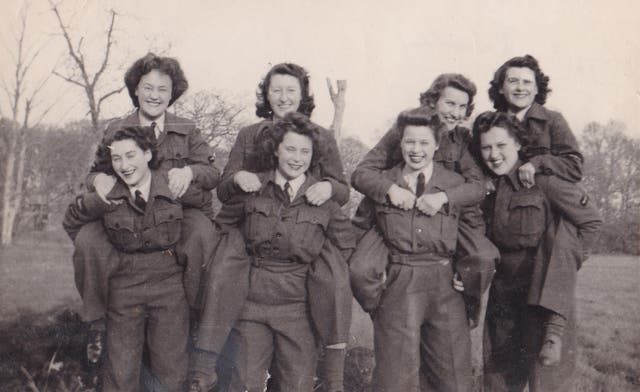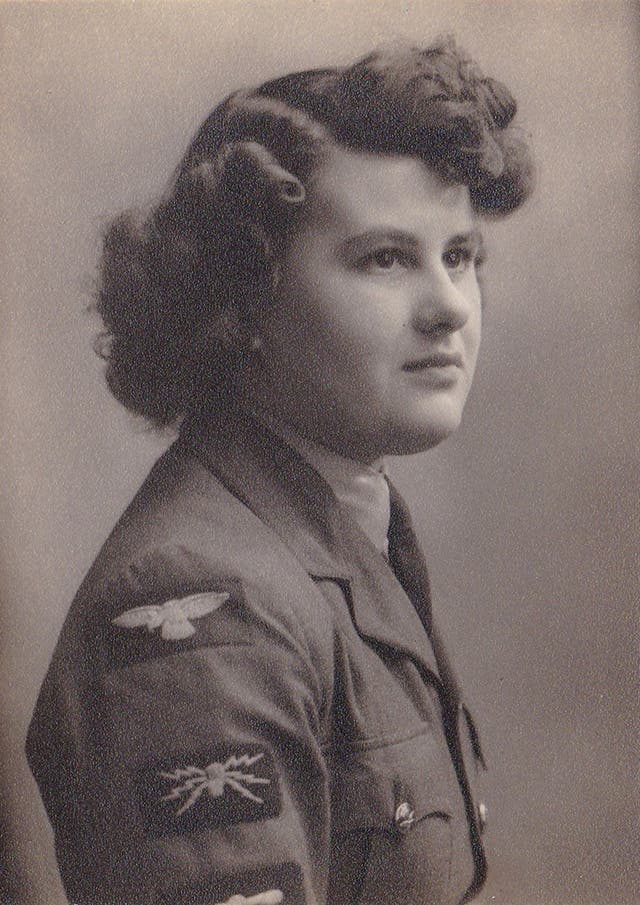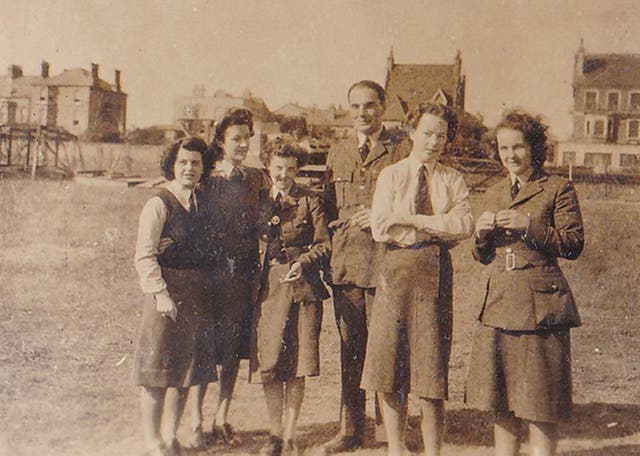Battle of Britain heroes ‘should be celebrated whatever your politics’
Kath McLeod joined the Women’s Auxiliary Air Force in 1942, after the battle’s conclusion, but continued to carry out a role that saved many lives.

A 97-year-old former radar operative has said the heroes of the Battle of Britain deserve to be celebrated “whatever your politics are”.
Kath McLeod joined the Women’s Auxiliary Air Force (WAAF) in 1942, after the battle’s conclusion, but continued to carry out a role that saved many lives.
During the Battle of Britain, radar technology was Britain’s secret weapon and enabled Allied fighter planes to be in the right place at the right time to take on enemy aircraft.
At coastal radar stations, known as Chain Home stations, the operatives – many of whom were women – tracked hostile and friendly aircraft and guided British and Allied fighter pilots on to enemy aircraft.
“We had a screen with an arc and the image would come up as a little blip if it was a single aircraft,” said Ms McLeod.

“I used to have to take the cassette out, which had a three-metre reel of film in, and go and develop that and then bring it back.
“That position went to headquarters and all the others and they were filtered.
“That must have been quite a job because they’re moving all the time, the aircraft, and they have to get the position so it’s quite a clever job.
“You’d have to be good at maths, I should think.”
She says she always harboured a love for aviation, which eventually drove her to sign up when she was 19.
“I lived in Ealing and that part of London had very little action, so I wasn’t in the Battle of Britain, to my bitter regret,” she said.
“I was working with the shipping federation and that was mostly to do with the claims of relatives lost at sea.
“I don’t know what made me join, I just suddenly thought, ‘I think I’ll go in the WAAF’, I’ve always been interested in aeroplanes, I’ve always had a yearning.

“I’ve always loved aeroplanes so I wouldn’t have thought of going in the Army or the Navy.”
The important role of those working in radar stations was only revealed after the war was over in 1945 when a statement was issued acknowledging the work of more than 4,000 WAAF personnel that had been carried out “under the closest secrecy since 1939”.
Ms McLeod said she believes that the bravery shown by young pilots during the war should continue to be celebrated.
“I thought it was very poignant when I went last year (to the memorial service at Westminster Abbey), there weren’t any pilots,” she said.

“Each year I’ve been and there have been less, and I thought they shouldn’t be forgotten.
“They should always be remembered, because they were only kids really, 18 or 19.
“Someone said to me once, ‘Why do you keep (celebrating it)’, and I said, ‘Well, why shouldn’t we when young kids give up their lives for you’.
“Whatever your politics are, that should be celebrated.”





